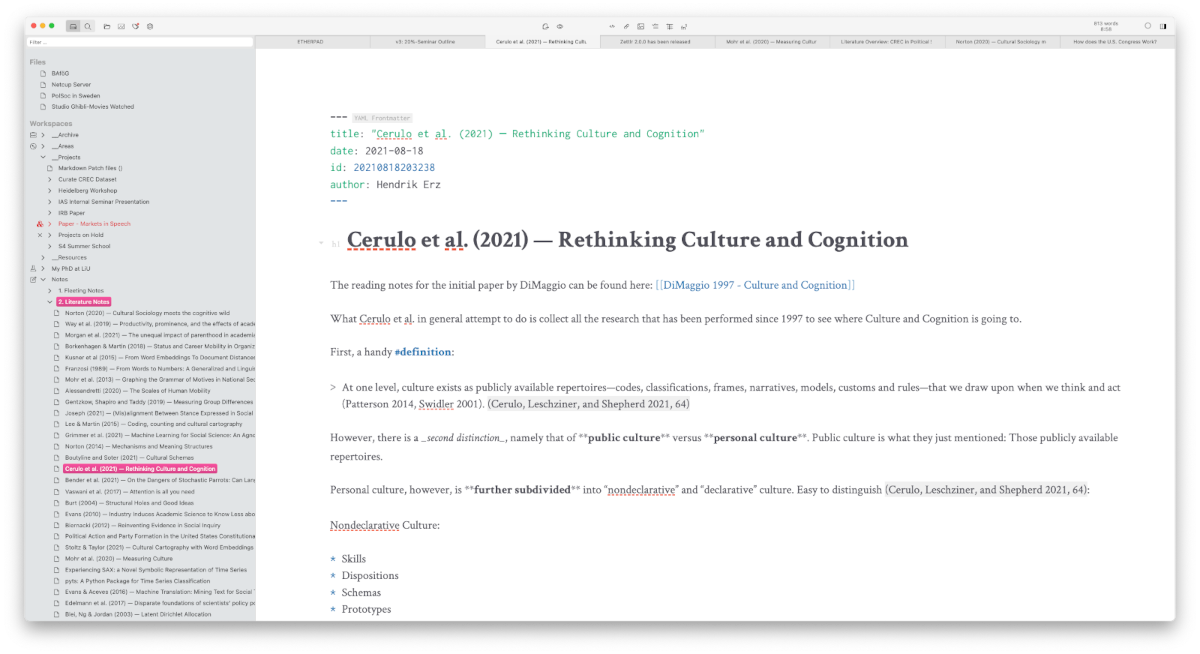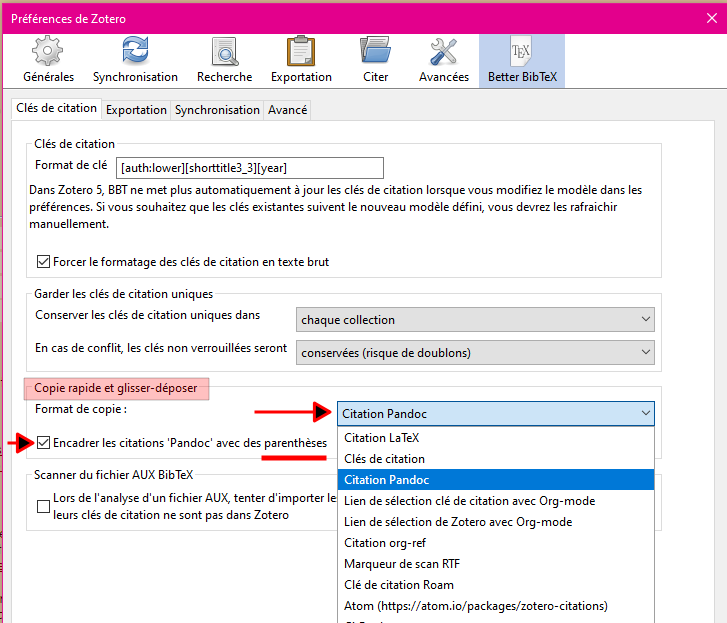


Initially, it was an extremely barebone app, lacking almost everything. However, Zettlr obviously did not support everything I needed from the very beginning. In its foundations, this approach has never changed to this day. I still had the approach to extract one long reading note from the articles I've read, then add my own thoughts to these, and finally writing a document by keeping all those readings notes open which I needed and switching between everything. I also started several attempts at my own Zettelkasten, all of which were ultimately futile.
#Obsidian vs zettlr pdf#
With Markdown I still wrote one long document per reading note, but I began to automate extracting notes from PDF files (using Zotero) and then simply copy-pasting the extracted notes into a reading note file.

However, gradually, writing in Markdown did change a few things. I was never really into the whole Zettelkasten thing, because I felt it was too cumbersome for too little benefits, so I continued to do what I did before: Writing single long reading notes for everything I read, and then immediately transforming that into long-form term papers and research articles. Since I grew up with very traditional ways of working in academia, I immediately and unconsciously, began searching for a long-form writing app. A good friend (who also had the idea for Zettlr's logo!) started to search for better ways of writing and managing knowledge and kind of dragged me along. I started the search for a better alternative to writing everything in Word (rather: LibreOffice) just a few months earlier. Shortly before I started working on Zettlr in summer 2017, my main workhorse was Ulysses, a proprietary long-form writing app. When I started working on Zettlr, my use-case was clear. I did not even drive by sight, I was navigating in thickest fog. And second, it will highlight the many non-strategic decisions I have made over the years, while the project gradually moved from a two-weeks semester break project to a full-fledged FOSS endeavour - without me knowing.Īnd I think that is one big part of the crux: That I did not see it coming where Zettlr went. This will serve two causes: First, it will make some of the mess more understandable because it will highlight my intentions behind what I did, and how I did it.

I personally believe that he has written the most comprehensive analysis of the app thus far, and therefore this document should not be seen as a counter-statement, but rather as an extension that builds on this work. This document is both a reply to Frank's thoughts and an attempt to further his ideas. He has created a basis for discussion which ultimately should lead towards a white paper to once-and-for-all stop the wild-growth that is Zettlr's feature set and instead streamline the efforts towards a sustainable app that can be developed further and can provide use-cases among the note-taking market, which is getting fuller by the minute. [Frank Carver has in this outlined in a very detailed, analytic, and sorted way, what he perceives Zettlr to be, and what not to be. This debate is certainly not new, but it has gained much more traction than earlier, which is due to the increasing popularity and maturity of Zettlr as an academic tool for writing and note-keeping.įor many years, I have refrained from deepening the discussion too much, but the problems in not having a clear mission statement are mounting so much that they start to become real blockers in any progress with regard to the feature set. A few weeks ago, a debate broke out on the Zettlr Discord server on what Zettlr actually is, and what it isn't.


 0 kommentar(er)
0 kommentar(er)
